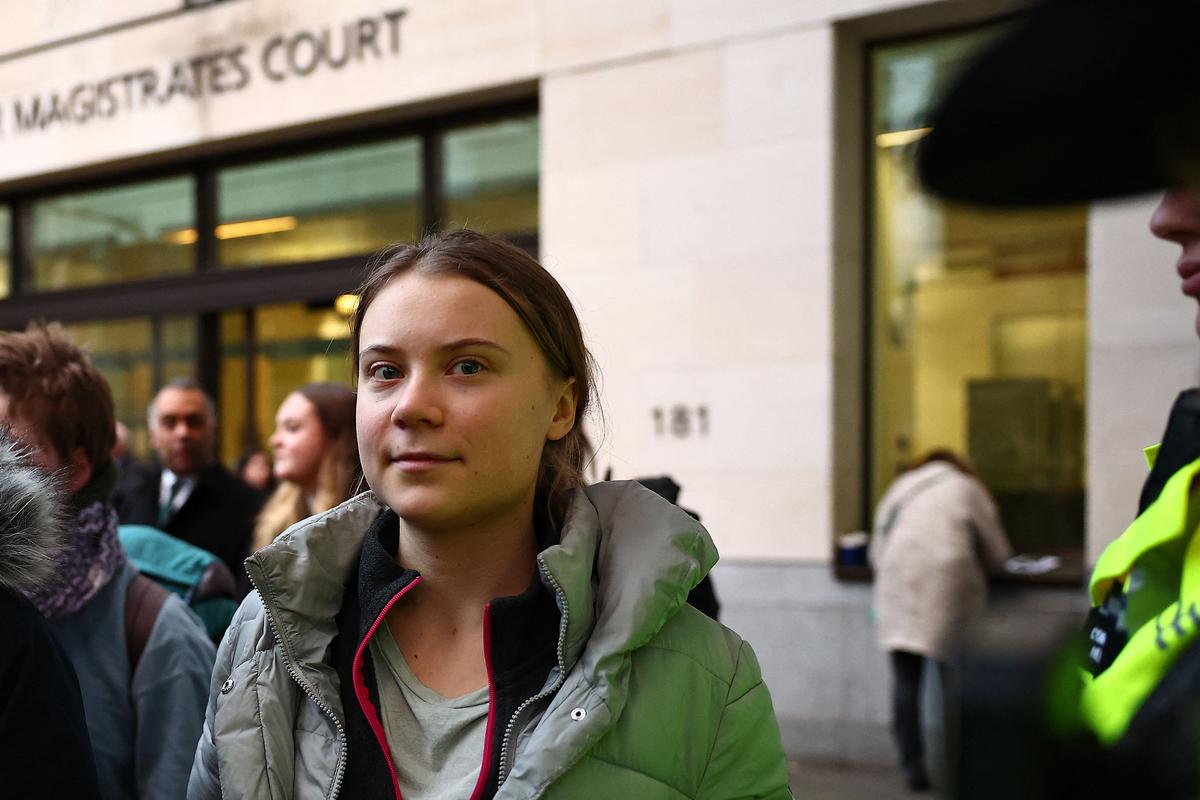A London court ruled that climate activist Greta Thunberg had no case to answer for a public order offence involving her protest outside an oil and gas conference last year, resulting in her acquittal.
On Friday at Westminster Magistrates’ Court, District Judge John Law dismissed the case against the Swedish activist, aged 21, and four other activists on the second day of their trial.
They were apprehended last October during an environmental protest in the British capital, where he determined that police had attempted to impose “illegal” conditions.
After organizing weekly protests in front of the Swedish parliament in 2018, Thunberg rose to international prominence as a campaigner. However, in 2018, she was apprehended alongside dozens of others outside a London hotel hosting the Energy Intelligence Forum, an event attended by leaders in the oil and gas industry.
Additionally, she and four others, ranging in age from 19 to 59, were charged with disobeying a police directive to relocate their demonstration to a designated area near the conference.
In November, Thunberg, two Fossil Free London (FFL) protesters, and two activists affiliated with Greenpeace all pleaded not guilty to violating a public order law.
She also participated in a march in southern England last weekend to protest the expansion of Farnborough Airport, which is primarily used by private aircraft.
“Remember who the true adversary is”
Thunberg expressed regret prior to Friday’s court judgment regarding the inability to organize a climate strike in London.
“Despite our physical presence here, climate, environmental, and human rights activists worldwide are subject to legal consequences, prosecution, conviction, and legal sanctions for adhering to scientific principles,” she wrote in a post on the social media platform X.
She continued, “We must remember who the true enemy is.”
On Friday, in his address to the five defendants, Law declared, “You have all been found not guilty of this offence.”
Additionally, he emphasized in his decision that the demands placed on demonstrators were “so ambiguous as to be illegal,” meaning that “those who disobeyed were not, in fact, committing an offence.”
Maja Darlington, a Greenpeace UK activist, described the verdict rendered on Friday as “a triumph for the right to protest.”
She stated to the AFP news agency, “It is absurd that an increasing number of climate activists are being sued for exercising their right to protest peacefully, while fossil fuel behemoths such as Shell are permitted to profit billions from the sale of climate-destructive fossil fuels.”
Prior to adjourning, Thunberg and her four co-defendants shared an embrace.





